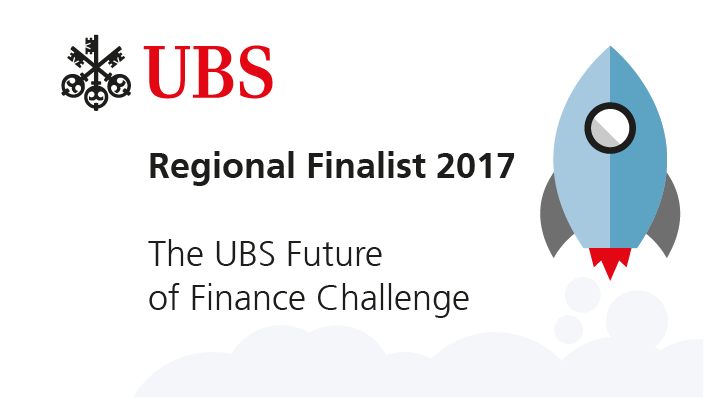Artificial Intelligence in Finance: AI is the New Electricity

This article was written by Harry Chiang, a Financial Analyst at I Know First.
Artificial Intelligence in Finance: AI is the New Electricity
“The big paradox here is that people think technology will lead to banking becoming more and more automated and less and less personalized, but what we’ve seen coming through here is the view that technology will actually help banking become a lot more personalized.” – Alan McIntyre, Senior Managing Director for Banking at Accenture
Summary:
- The Birth of AI Banking: Defining Artificial Intelligence
- The Surprising State of AI and Banking Today
- Why Are Major Banks Reluctant About AI?
- The Most Important Developments in AI for Personal Finance
- Four Major Benefits Consumers are Missing Without AI
- Case Study: DBS, Digibank & India
- How I Know First is Changing Banking
The Birth of AI Banking: Defining Artificial Intelligence
Over the past few years, news articles have casually floated the term ‘Artificial Intelligence’ around at an increasing rate. It’s one of those buzzwords that somehow finds its way in to every tech-related conversation. Even the least tech-savvy person has a vague notion of what it is. The problem is, some of the more tech-savvy person don’t have a much clearer notion of what it is either.
The definition of AI ranges and has vague boundaries. Concepts range from a smart home device to the idea of a completely sentient Terminator-Skynet scenario. As the name succinctly suggests, AI is the intelligence exhibited by machines. The inconsistencies stem from what one defines as intelligence. For example, researchers no longer consider optical character recognition an example of “artificial intelligence”. It is now a fairly common technology.
Currently, there are a variety of machine capabilities which researchers consider “artificial intelligence”. These include, successfully understanding human speech and competing at a high level in strategic game systems. Other examples include self-driving cars, intelligent routing in networks, and interpreting complex data.
Financial institutions are mostly interested in simulations and interpreting complex data. Banks have been using artificial neural network systems a lot longer than most people would realize. One of the first uses was several decades ago, in 1987. The Security Pacific National Bank in America created a Fraud Prevention Task force to counter the unauthorized use of debit cards. This began a long saga of using the developing artificial intelligence at the time to detect charges or claims outside of the norm. The banks used machines to spot fluctuations in regular transaction patterns and double-checked these with human input.
Banks have since increased their capabilities with AI as technology has improved. Banks can now use artificial intelligence systems to organize operations, maintain book -keeping, invest in stocks, and manage properties.
The Surprising State of AI and Banking Today
Despite these increased capabilities, banks seem to be following the age old adage: “Just because you can doesn’t mean you should”. Currently, AI is a massive industry. Facebook, Google, Microsoft, and Baidu have spent at least $8.5 billion on acquiring AI talent. However, there are only a few banks which have made steps in to developing AI products as quickly as these tech giants.
A joint study by the National Business Research Institute and Narrative Science, which is in itself an AI startup, revealed that traditional financial institutions are still hesitant to adopt AI. Only 32% of surveyed respondents confirmed use of recommendation engines, predictive analysis, voice recognition, and allied technologies.
There is a discrepancy between the consumer and the institution in this case. According to a recent study by Accenture, consumers are actually willing to embrace AI in their banking experience. The study noted that the consumers’ willingness did, however, depend on a customized experience in exchange for this personal information. Over 67% of millennials currently rely on mobile banking and check their phones 45 times per day. 73% of millennials would rather have their financial services handled by Google, Amazon, and PayPal rather than their own bank. 60% cite the desire for a financial partner in their banking, not a financial report.
Furthermore, the banks don’t lack the technological foundation to implement AI. There is increasing support and architecture in place for banks to utilize it. For example, Intel recently acquired Nervana and will release its new Application Specific Integrated Circuit (ASIC) named Lake Crest later this year. This processor is custom-designed and optimized for deep learning, which is a core AI technology. Intel also plans to integrate the Nervana technology with its Zeon processors under a project titled Knights Crest. By 2020, Intel predicts Knights Crest will improve Intel’s AI technology performance by a factor of 100.
Experts, however, believe banks will not avoid AI for much longer. A report by Citi estimates that 30% of banking jobs are in imminent danger because of upcoming technological advances. An Accenture report indicated that within the next 3 years, banks will turn to artificial intelligence as their primary means of interaction with consumers. In addition, Gartner recently calculated that by 2020, customers will have 85% of their business interactions with no human communication.
Why Are Major Banks Reluctant About AI?
If there is such a call for AI, the question then is, why are banks not answering it? Chief Product Officer of AI start-up Kasisto, Dror Oren, states “Selling is always a cross-bank initiative…you need to make sure everything is aligned with business drivers and technical complexities”. These complexities are augmented by the general skepticism around AI in the market. Bank executives often quote not having seen enough data points or successful track records to follow through with implementing it themselves.
Oren explains, “Most big technology providers are cloud based. To be adopted by banks, you have to support on-premise deployment where banks’ internal servers run your software”. He further articulates that banks perform rigorous “penetration testing”, where security experts employ a range of blackhat strategies to attack and break any new technology being evaluated.
This security measure is only one of many necessary for the banks to take before adopting any potential changes. For example, disaster recovery is another key factor. Most AI companies work using the cloud, however, this would not work for a bank that needs a fast recovery with only a few seconds of downtime. This is known as a “hot-hot” recovery and requires onsite technology to ensure the bank is self-sufficient. Furthermore, AI technology tends to be strongly data-based. This means the algorithms require vast volumes of consumer information and input. This creates challenges with banks’ internal compliance and has led bank executives to list privacy as the top worry related to AI in reports.
A study by PWC showed that 2 in 3 financial services firms in the US were hindered in AI adoption by “operations, regulations, and limitations in budget or resources”. 12% of financial institutions surveyed that weren’t already using AI blamed the technology for being new, untested, and risky. Other firms cited “siloed data sets, regulatory compliance, fear of failure, and unclear internal ownership of emerging technologies”. 50% of banks listed their legacy systems as the biggest challenge they face. 44% cited a lack of unified vision. 38% pointed at a shortage of skills and experience.
Banks are massive, complex financial institutions, and their size and regulatory restrictions make it difficult to adopt new technology. Especially technology that is pushing the frontier as far as artificial intelligence. One of the principal traits of an institution such as a bank is reliable stability. The very nature of the bank requires it to be incredibly secure and constantly available. Hence, there are naturally very cautious views of implementing AI.
However, this does not mean that banks will never adopt AI. For AI enablers in finance such as Kasisto, Voyager Labs, IBM Watson Cyber-security, and Amazon’s Alexa platform, the market presents vast opportunities for engagement. IDC predicts worldwide revenues from the adoption of cognitive systems across industries will experience a near six-fold increase from $8 billion in 2016 to over 2016 $47 billion in 202, with retail and banking leading the charge.
The Most Important Developments in AI for Personal Finance
Despite the lack of most traditional banks adopting serious AI measures, there are still many interesting applications of AI currently in the industry. Perhaps the most prevalent use of AI in the banking industry today is the development of chatbots. Capital One utilizes a chatbot named Eno to help with customer service inquiries. RBS and NatWest are also testing an AI customer service chatbot dubber Assist. Interestingly, Swedbank’s Nina web assistant now has an average of 30,000 conversations per month and can handle more than 350 different customer questions.
Another principal application of AI in the banking industry is wealth management and advice. Banks are using AI to accurately predict which customers are more likely to cancel service or default on their loans. Bank of America is poised to launch an AI bot for its smartphone app next year. The bot, Erica, will use AI to learn a consumer’s personal spending habits and offer financial advice in response.
Wells Fargo, UBS and ANZ Bank in Australia have also been using AI to offer wealth management advice. ANZ Bank utilizes Watson to help its financial advisers understand their clients. In February, Wells Fargo created an AI team to provide more personalized services to its customers. UBS implements Sqreem technology to identify behavioral patterns of individuals and match these with different types of wealth management products
Some banks have used AI to improve upon its original function in the banking industry. Lloyd’s Banking Group, which has been in operation since the 18th century, partnered with Pindrop to detect fraudulent phone calls. Pindrop’s AI software builds an audio fingerprint of each caller based on 147 different features of the human voice. This is then used to confirm each user.
Most recently, in March, JPMorgan hired a new team to automate its legal work. The program, Contract Intelligence (COIN), automates hours of reading. JPMorgan applied this to interpreting commercial loan agreements, for example, which previously consumed around 360,000 hours of work each year by lawyers.
Overall, by using AI, some European banks have experienced a 10% increase in sales of new products. They have also experienced a 20% savings in capital expenditures, a 20% increase in cash collections, and a 20% decline in churn.
Four Major Benefits Consumers are Missing Without AI
Banks and consumers alike stand to gain a great deal by implementing AI. Below are several of the benefits that AI could provide in the banking industry.
Improved, Personalized Customer Experiences: The recent 2017 Retail Banking Trends and Predictions report cites a revamped concentration on the customer experience as the principal trend for executives. The study points out that despite perception, consumers are willing to share personal information. They only require reassurance that in exchange they will be receiving personalized advice, offers, and services based on this personal information. Through personalized communications with trained AI bots, people will feel they are having a more human and understanding experience. Fintech firms such as Betterment and Wealthfront began offering AI investment advice, but traditional banks are now adopting this as well.
Accurate Fraud Detection: As mentioned, fraud detection was the basis for machine learning technology in the banking world. By using AI to detect suspicious patterns of activity in customers’ accounts, banks can rid themselves of the tedious process of having to manually check each customer’s set of transactions. This is an impossible human task in today’s banking industry due to the high quantity of customers and financial movement on a daily basis. According to Narrative Science, “Feedzai uses machine learning to evaluate transactions and millions of data points in real-time. The company maintains an operational model and a challenger model that it constantly evolved as threats change”.
Improvement in Productivity: As Stanford Deep Learning Expert Andrew Ng states, AI can be used to automate routine tasks, and will eventually replace all tasks that require short bursts of cognition. In terms of banking, banks can apply this to customer communication flows and basic back office processing. For example, banks can improve onboarding new customers through personalized interactions. Banks can also automate the compliance department. As seen with the biggest application in chatbots, banks can now automate many of the tasks which previously took hundreds of hours.
Improved Consumer Recommendations: Startups such as Moven and Simple have developed mobile banking apps that let users track their spending and increase their savings. The apps manage this through automated, personalized recommendations via a specialized debit card linked with their smartphone app. Brett King, CEO of Moven, stated: “For me, advice is the next big disruption. For instance, in banking you do need real-time advice. The ability of humans to provide that is poor and, as humans, we’re inconsistent and we make mistakes. Artificial intelligence will not”.
Case Study: DBS, Digibank, and India
DBS Bank is a multinational banking and financial services corporation headquartered in Singapore. Global Finance named DBS ‘Safest Bank in Asia’ for seven consecutive years from 2009 to 2015.
In 2016, DBS announced that it was targeting a hundredfold boost to its Indian customer base within 5 years after announcing that it is adding a mobile-only banking model in India. The bank’s chief executive, Piyush Gupta, said its aiming for 5 million savings accounts in INdia in the next 4 to 5 years through Digibank.
Digibank is a mobile service that allows customers to open accounts and access services from their smartphones. Kasisto’s conversational artificial intelligence platform powers the app. There is no paperwork to sign up with Digibank. Instead Digibank authorizes customers through the Aadhaar card, a biometrics-enabled ID which the government has issued to over 1 billion Indians. This includes multiple benefits, such as account-holders earning 7% interest from the first rupee, one of the highest market rates. Furthermore, customers have unlimited free cash withdrawals domestically and there are no minimum balance requirements.
Gupta added that DBS is working to take Digibank to China and Indonesia within the next two years. Since implementation mid-2016, Digibank had managed to contain 82% of customer inquiries with bots.
This is a good example of how AI is being used in an entirely new model, even though it is managed by a traditional bank. This is an interesting application which is becoming increasingly relevant as different markets emerge and AI technology advances.
How I Know First is Changing Banking
One of the most sought after applications of artificial intelligence in banking is its use for active wealth management. I Know First is pushing this frontier and making bold moves towards the future of financial investment. I Know First is a Fintech company that provides state of the art AI-based self-learning algorithmic forecasting solutions for the capital markets to uncover the best investment opportunities. There are two tiers to I Know First’s service. Tier I is a client-based daily support forecast. It provides clients with a heatmap of the top picks for bullish and bearish stocks over various time horizons. Tier II is institution-based. For Tier II, I Know First uses its AI algorithm to structure an investment portfolio.
I Know First was selected as a Top 3 Fintech company in Europe in the European Fintech Awards 2017. I Know First has clients in over 50 countries and makes predictions over 40 markets across the world and considered one of the Top fintech companies in Israel.
There are several extremely interesting recent developments in I Know First’s involvement with banking in particular. For example, the company is working with several large European banks to apply the algorithmic predictions for the US stock exchange to Euronext. Furthermore, the company is also developing an advanced trading ideas generation tools. This is aimed at the private banking division, providing strategic approaches to using the generated daily market opportunities forecast. I Know First is also looking at similar opportunities in Brazil, with BM&F BOVESPA.
In addition, I Know First is currently integrating the company’s artificial technology with the Bank’s Research and Advisory division. This will utilize the algorithm to identify investment opportunities and offer clients ETF and sector stock predictions. This is made possible by a bottom-up approach based on I Know First’s AI algorithm, which, for example, will build the collection of ETF stock options from the individual stocks.
I Know First is also looking at other opportunities in Israel, specifically at actively managing mutual funds and hedge funds with an Israeli Investment House. The company is also developing AI-powered wealth management products and investment vehicles. These include approaches such as smart-beta and actively managed ETFs.
I Know First is transforming financial services with artificial intelligence. Recently, BBVA selected the company as one of the few Israeli fintech startups invited to present at “Pitch Day” at the BBVA Innovation Center in Madrid. This accomplishment is another marker along the road for I Know First’s expansion and for the company to tackle the issues of the financial industry with the artificial intelligence.
Conclusion
Overall, I Know First and Digibank are good examples of how AI is being pushed increasingly further in the technological banking industry. The traditional banks are already beginning to adopt new AI technology, and companies such as I Know First are at the forefront of the upcoming change. Although banks are currently reluctant, in the near future artificial intelligence is poised to change the way we bank entirely.




















